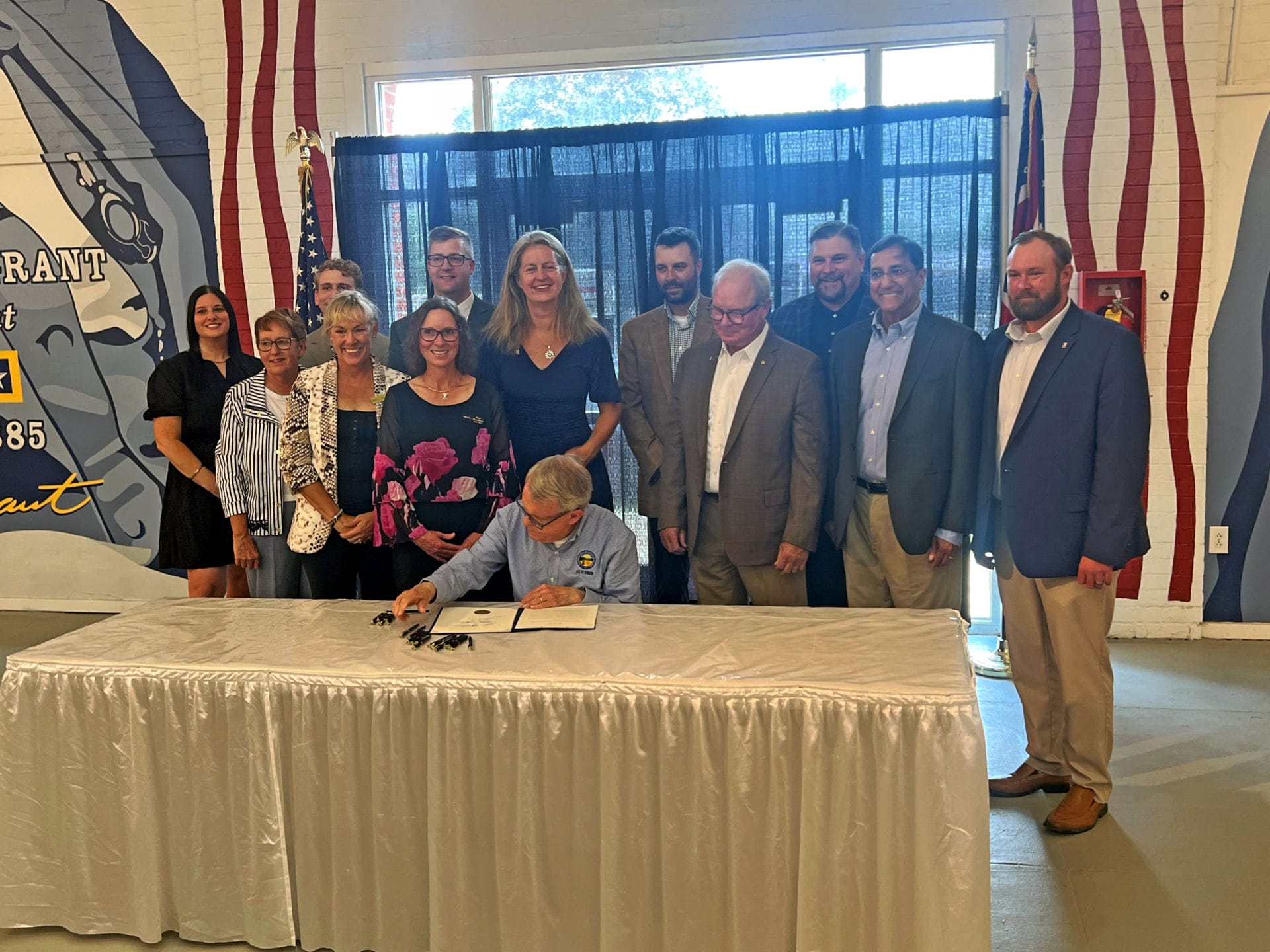GOVERNOR DEWINE SIGNS ODA’S LEGISATIVE PRIORITIES INTO LAW
 This afternoon, Governor Mike DeWine signed Senate Bill 40 into law. This important legislation includes two ODA priorities – the Dentist and Dental Hygienist Compact and dental non-covered services reform – both of which will benefit dental patients and dentists across Ohio.
This afternoon, Governor Mike DeWine signed Senate Bill 40 into law. This important legislation includes two ODA priorities – the Dentist and Dental Hygienist Compact and dental non-covered services reform – both of which will benefit dental patients and dentists across Ohio.
Dentist and Dental Hygienist Compact
The ODA has a long history of supporting dental licensure reform and freedom of movement for dentists across state lines. Over the years, the ODA has worked to get legislation passed that requires the Ohio State Dental Board to accept various tests and other clinical assessments for license purposes to reform the dental licensure process and enhance freedom of movement for dentists. These laws became models for other states to follow.
The Dentist and Dental Hygienist Compact is the next step toward achieving real dental licensure reform and freedom of movement while ensuring patient protections and appropriate oversight.
To establish professional practice portability, states can form interstate compacts, which are legal contracts between two or more states that allow them to cooperatively address shared problems while maintaining sovereignty over issues belonging to states. Compacts specifically formed to address occupational licensure in the health professions help facilitate freedom of movement and multistate practice for practitioners, maintain or improve public health and safety, and preserve state authority over professional licensing.
In 2022, the Council of State Governments, the U.S. Department of Defense, the American Dental Association, the American Dental Hygienists Association, and other interested parties created a licensure compact for dentists and dental hygienists.
The Dentist and Dental Hygienist Compact is a legally binding agreement among states that provides a pathway through which dentists and dental hygienists can obtain compact privileges which authorize practice in states where they are not licensed. A state must enact the compact model legislation via a state’s legislative process to join. Dr. Joe Crowley, who is a past president of the ODA and the ADA and is the current chair of the Coalition for the Modernization of Dental Licensure, said “the goal for organized dentistry is to get all states to enact the legislation so dentists have true practice portability across the entire country.”
Last year, Senator Kristina Roegner (R-Hudson) introduced Senate Bill 40 which would join Ohio to the Dentist and Dental Hygienist Compact. Senate Bill 40 builds on the momentum Ohio has already gained by previously joining the Medical Compact for physicians and the Nursing Compact.
While promoting professional mobility, Senate Bill 40 also maintains appropriate standards for dentistry in Ohio by requiring that any dentist or dental hygienist practicing in Ohio pursuant to the Compact must follow Ohio’s dental laws and rules and will be subject to the full range of disciplinary authority of the Ohio State Dental Board. Ohio is now the tenth state to pass the Compact, joining Colorado, Iowa, Kansas, Maine, Minnesota, Tennessee, Virginia, Washington and Wisconsin. The legislatures in several other states are also considering the Dentist and Dental Hygienist Compact.
Dental Non-covered Services
In the last several years, dental insurers began telling dentists what they can charge for services the insurers do not even cover. This scheme is inconsistent with the fundamental premise of dental benefits, which is to provide coverage for specified dental services for the enrollees. This practice of insurance companies dictating fees for services they do not even cover is creating significant hardships for dental offices and interferes in the dentist-patient relationship on procedures the insurance companies have nothing to do with.
Because of this very situation unfolding in states across the country, policymakers began to take notice and decided reforms needed to be put in place. The National Conference of Insurance Legislators created a model act for states to consider that would prohibit dental insurers from dictating fees for non-covered services.
The Ohio Dental Association has pursued this legislation for several years and in the spring of this year the Ohio House Health Provider Services Committee added these non-covered services reforms to Senate Bill 40, which otherwise dealt with the Dentist and Dental Hygienist Compact. The provisions included in Senate Bill 40 – the dental licensure Compact and non-covered services reform – received multiple hearings in the relevant health and insurance committees in both the Ohio House of Representatives and the Ohio Senate. Ultimately, Senate Bill 40 overwhelmingly passed both the Ohio House and Senate with bipartisan support. Governor DeWine’s signature is the culmination of years of effort by the ODA to reform the state’s dental insurance laws on non-covered services and to promote freedom of movement for dentists.
This legislation will be in effect in 90 days, and dental insurance company contracts will be required to comply with the new law starting Jan. 1, 2025.
ODA Executive Director David Owsiany, who testified in favor of Senate Bill 40 on multiple occasions in various Ohio House and Senate Committees, said that “these reforms are long overdue in Ohio and were passed because of the dedication of the ODA’s advocacy team and member dentists who engaged with policymakers over the years to educate them on the importance of this legislation.”
